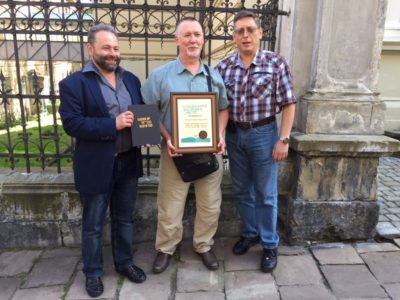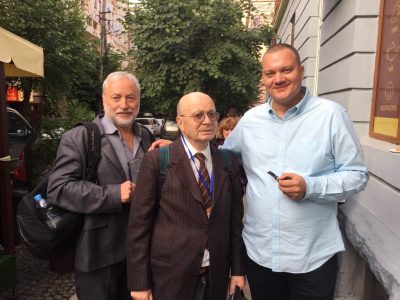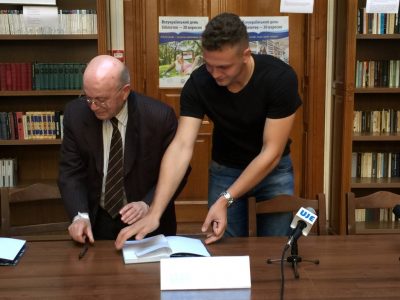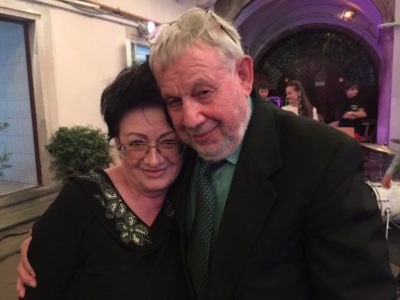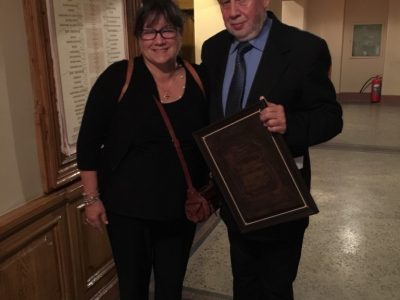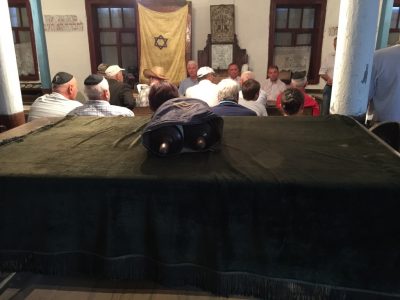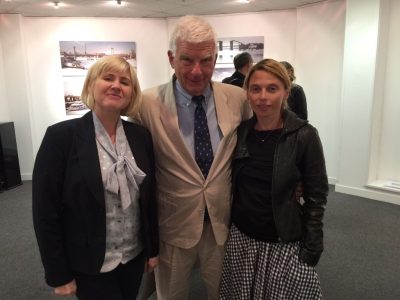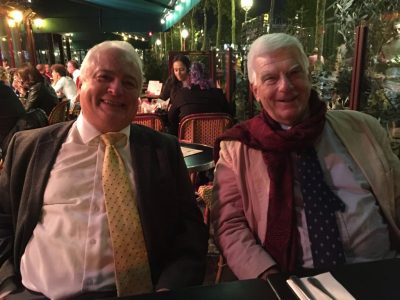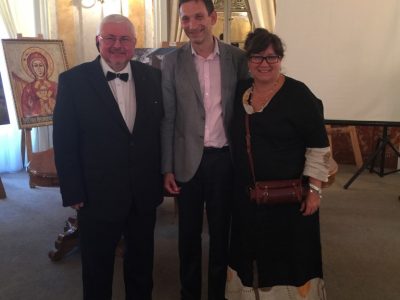Turning the Page…
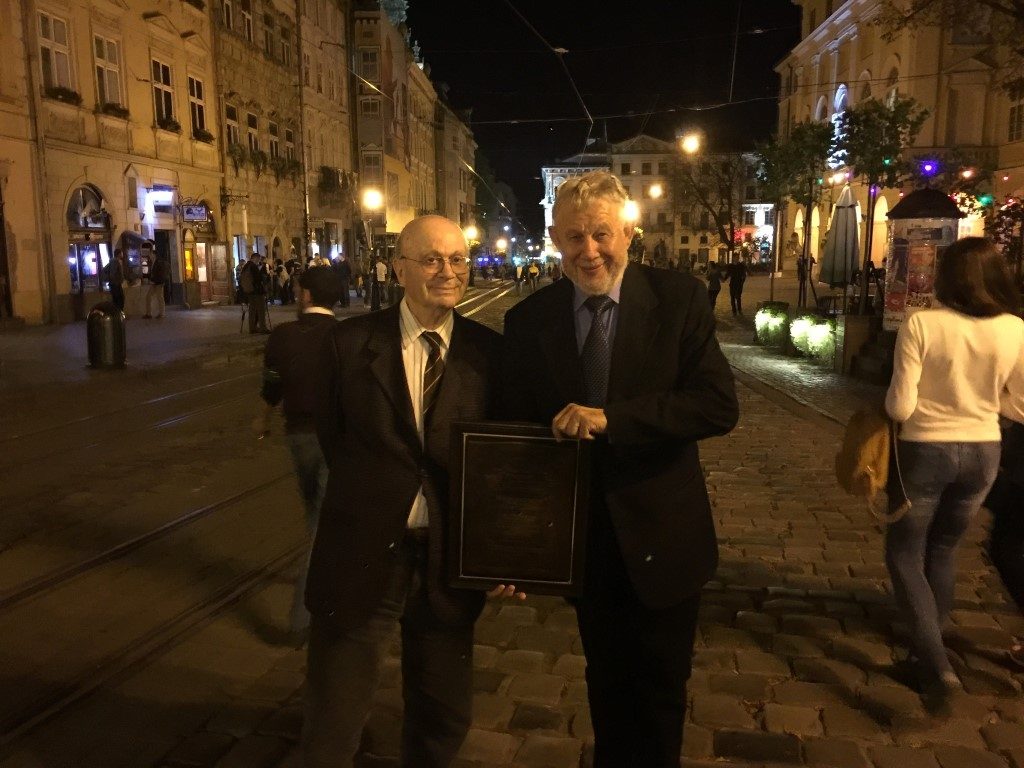
What is a book?
As the train from Lviv races back to Kyiv after a trip that has taken our organization to Uzhhorod, Bershad, Kamianets-Podilskyi, Chernivtsi, Paris, and then Lviv, the question consumes me. I have been to these cities over the last three weeks to promote books whose publication has been supported by the Ukrainian Jewish Encounter.
It has been a remarkably successful tour, culminating with the awarding of Babyn Yar: History and Memory on 14 September 2017 as one of the best books of the Lviv Book Forum. The prize follows other awards that have been presented to UJE-supported publications at the fair in previous years: Jews and Ukrainians: A Millennium of Co-Existence by Paul Robert Magocsi and Yohanan Petrovsky-Shtern was recognized last year by the forum’s president Oleksandra Koval with a special award, and a Yiddish-Ukrainian dictionary by Dmytro Tyshchenko was also named a best book in 2014.
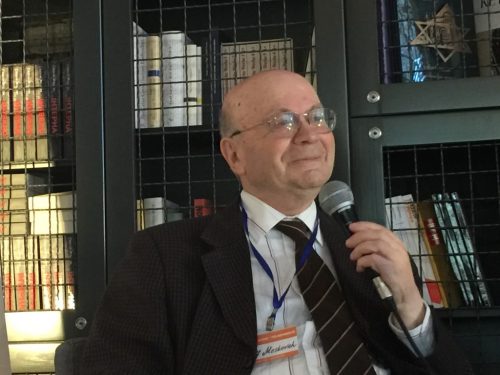
This trip also provided an opportunity to present another volume: The Ukrainian-Jewish Encounter: Cultural Dimensions, co-edited by Wolf Moskovich and Alti Rodal, both natives of Chernivtsi. The book’s English-language version was unveiled last year in Israel. Earlier this month, Moskovich appeared in Chernivtsi to inaugurate the Ukrainian-language tome, to great interest and acclaim.
As its title suggests, the book chronicles the interconnectedness of Ukrainians and Jews in culture, architecture, and literature, among other spheres. Moskovich, professor emeritus at Hebrew University, noted in presentations in both Chernivtsi and Lviv that the Ukrainian-Jewish interaction can sometimes be imperceptible, but has nonetheless contributed to a rich cultural tapestry. One of the great Jewish contributions, he has often said, is the Bible. The first and most authoritative translation of the Bible into Ruthenian was done in the Ostroh Academy in the sixteenth century.
Moskovich is often called the father of Ukrainian studies in Israel. It is there, many years ago, where he met the engineer Victor Radutsky, a man also of Ukraine, who at a certain time in his life abandoned his profession for his passion—translation.
Hebrew, Radutsky told me one languorous Lviv evening, is a precise language, one suited for the minds of people like him. He first met the renowned Israeli writer Amos Oz at a kibbutz after he took a stab at translating his prose. A lifelong friendship and literary partnership was quickly born. Radutsky, who at eighty has more joie-de-vivre than many a fraction his age, was recognized at the Lviv Forum for his translations of Oz and contributions to Ukrainian-Israeli cultural relations. Next year, Radutsky’s new Ukrainian-language translations of works by Oz and Aharon Applefeld, another native of Chernivtsi, will appear.
This tour also took us to cities that were once regional gems of the Austro-Hungarian Empire, and retain the same status in contemporary Ukraine.
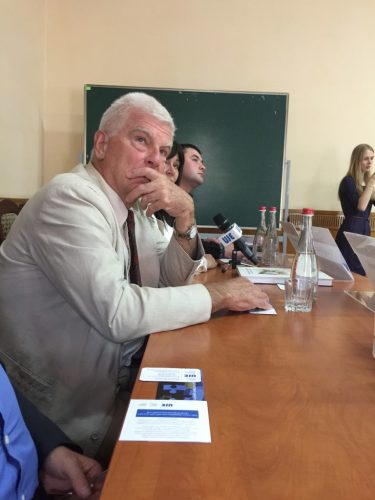
Paul Robert Magocsi, Chair of Ukrainian Studies at the University of Toronto, has traveled the breath of Ukraine to talk about Jews and Ukrainians: A Millennium of Co-Existence. Magocsi’s principle themes in those presentations include the following important points: the Ukrainian-Jewish relationship should not only be defined by the painful chapters that were devastating for Jews, but they cannot be forgotten; the cultural, religious, and literary legacy between these two peoples are largely unknown and often overlooked; finally, in exploring this complex relationship, Ukrainians and Jews can learn as much about each other as themselves.
On this trip, however, along with presentations within the former Austro-Hungarian lands, the exploration of the contours of the Ukrainian-Jewish relationship was taken further afield. Magocsi recently appeared in Paris at the Ukrainian Cultural Center where the issues that provoked audiences revolved, among other things, around the effect of episodes that occurred closer to home, including the assassination of Simon Petliura having taken place not distant from where the presentation took place.
Watching workers at the end of the Lviv Book Forum pack up books that only hours before had been displayed on tables for visitors to browse through, I realized a book for me has become far more than the experience of opening its pages and entering another world.
Each of the books supported by the UJE is groundbreaking and elicits attention. We have thoroughly documented our multi-city journey. Numerous excerpts from those presentations and interviews will appear on our website in the coming weeks.
These presentations represent a world of experiences shared with people from various backgrounds, the making of new unexpected friendships, and a hope that a better, more inclusive future can be built.
Text and Photos: Natalia A. Feduschak







